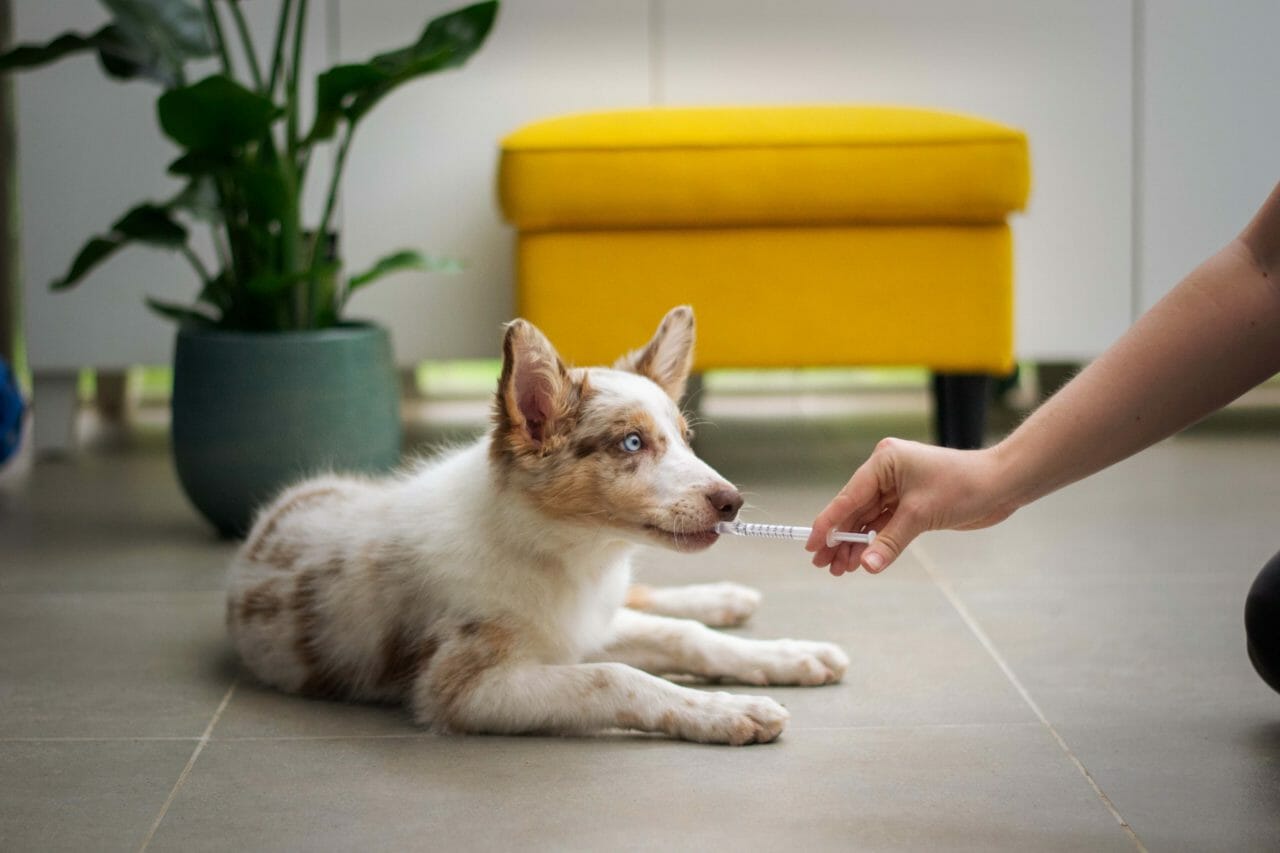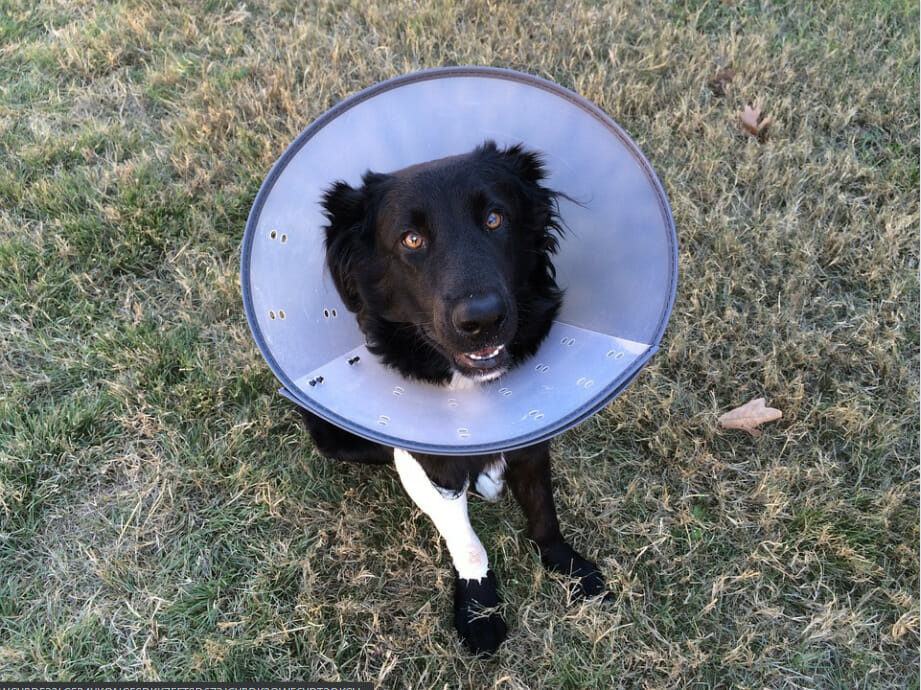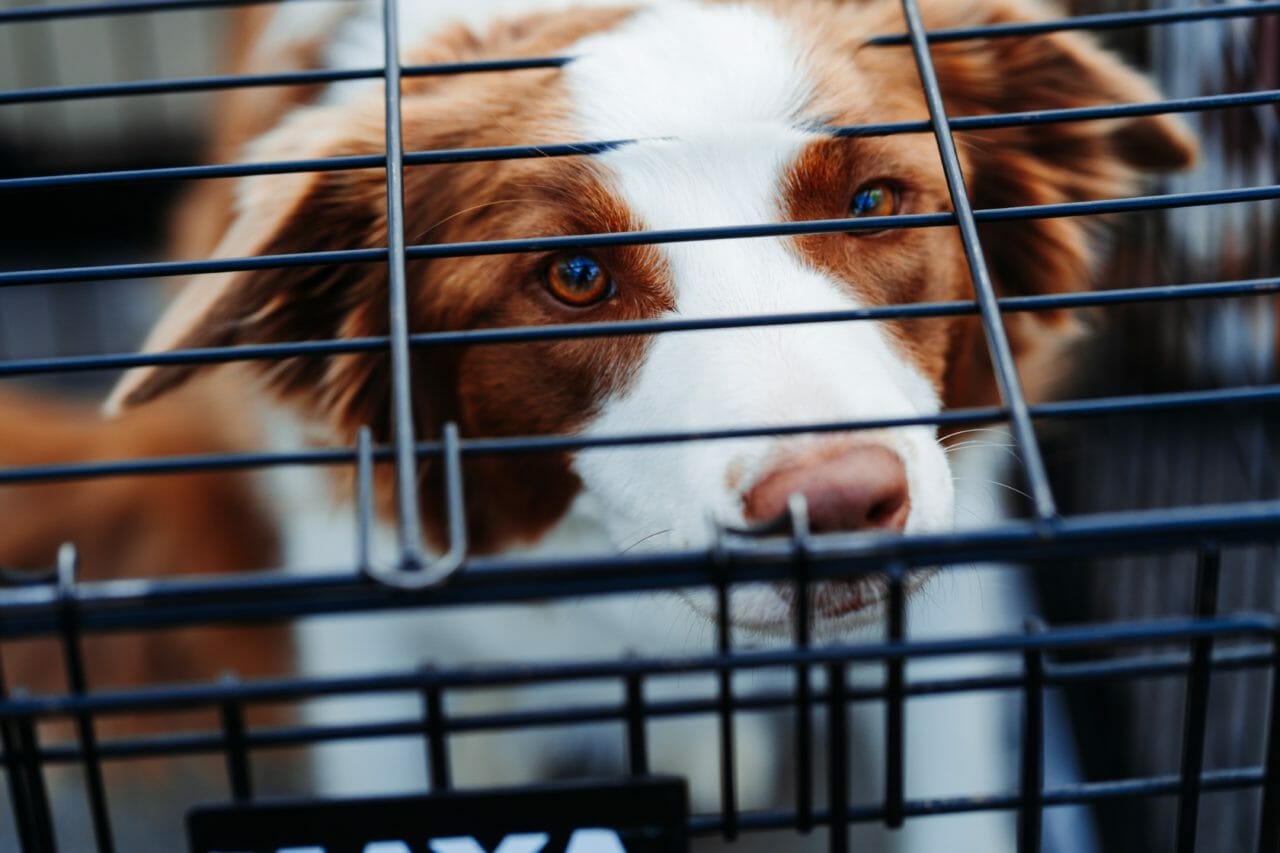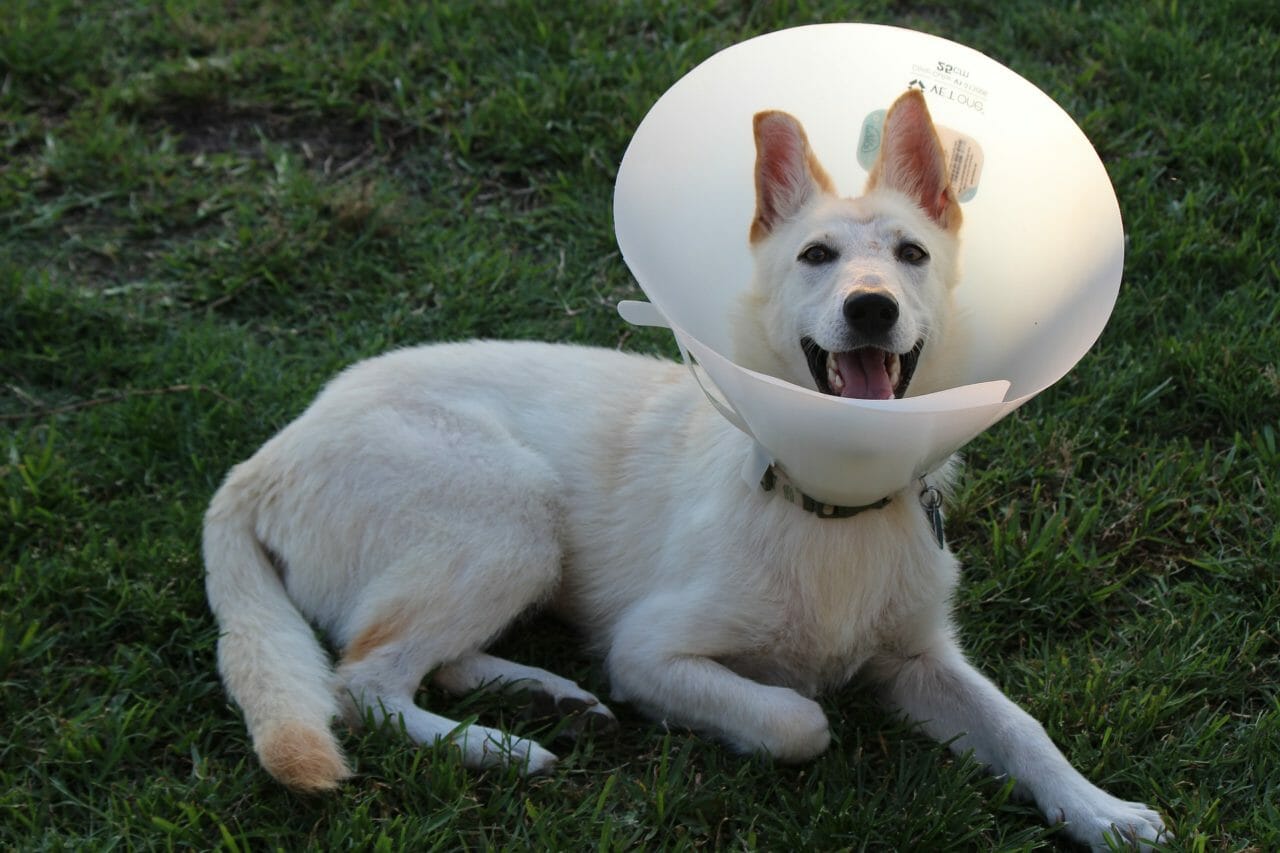Just like humans, your dog’s throat can sometimes become irritated
That itchy and scratchy feeling in your throat can be more than just a cold — it’s throat irritation. And if you’re a dog owner, your furry friend can be bothered by this pesky condition too. In fact, dog throat irritation is quite common.
But do you know what to do when your dog’s throat is irritated, and their bark becomes hoarse? RehabPet.com explores everything you need to know about this condition, from symptoms to causes and treatments.
What Causes Dog Throat Irritation?
Dog throat irritation is when your dog’s throat is inflamed, itchy, or scratchy. This can make swallowing difficult, and their bark becomes much quieter.
Because there are so many different issues that can affect the throat, it can be difficult to pinpoint the exact cause. However, there are a few common culprits:
Excessive Barking
The easiest to spot symptom of dog throat irritation is a change in your dog’s bark. If they have been barking non-stop for an extended period of time, this can cause strain on their vocal chords and lead to throat irritation.
Allergies
Seasonal allergies are a common problem for dogs, and they can also cause throat irritation. If your dog is sneezing more than normal or has watery eyes, they may be experiencing an allergic reaction. Allergies can also cause itchiness and throat inflammation.
Kennel Cough
Kennel cough is a highly contagious respiratory disease that affects dogs. It’s similar to the human cold, and can cause a hacking cough, runny nose, and sore throat. If your dog has been around other dogs that are sick, you may be dealing with kennel cough.
Tracheitis
Tracheitis is an inflammation of the trachea, or windpipe. This can be caused by a virus, bacteria, or even an allergy. Tracheitis is a serious condition that can make it difficult for your dog to breathe, and should be treated by a veterinarian as soon as possible.
Foreign Object
If your dog has been coughing or hacking more than normal, it’s possible that they have swallowed a foreign object. While owners might jump to something large, like a toy, it could be something as small as a seed or a blade of grass that they can’t get out. If you suspect that your dog has swallowed something, book a vet appointment right away.
Symptoms of Dog Throat Irritation
The most common symptom of dog throat irritation is a change in their bark. If your dog’s bark sounds hoarse or raspy, this is a sign that something is wrong. Other symptoms include:
Constant Swallowing Motion
If you notice your dog swallowing more than normal without food or water in their mouth, this is a sign that their throat is sore.
Coughing or Hacking
A cough is another common symptom, and can be either dry or wet. A wet cough usually means that there is fluid in their throat that they are trying to clear. If it is more dry and constant, it could be kennel cough.
Loss of Appetite
If your dog is experiencing throat pain, they may not want to eat or drink. This is because swallowing can be difficult and painful.
Excessive Drool
Dogs typically drool when they are hungry or thirsty, but if you notice that your dog is drooling more than normal, it could be a sign of throat irritation.
Lethargic
If your dog is tired and doesn’t want to play, it could be a sign that they are not feeling well. Lethargy can be caused by many different things, but if your dog also has other symptoms of throat irritation, it’s likely the culprit.
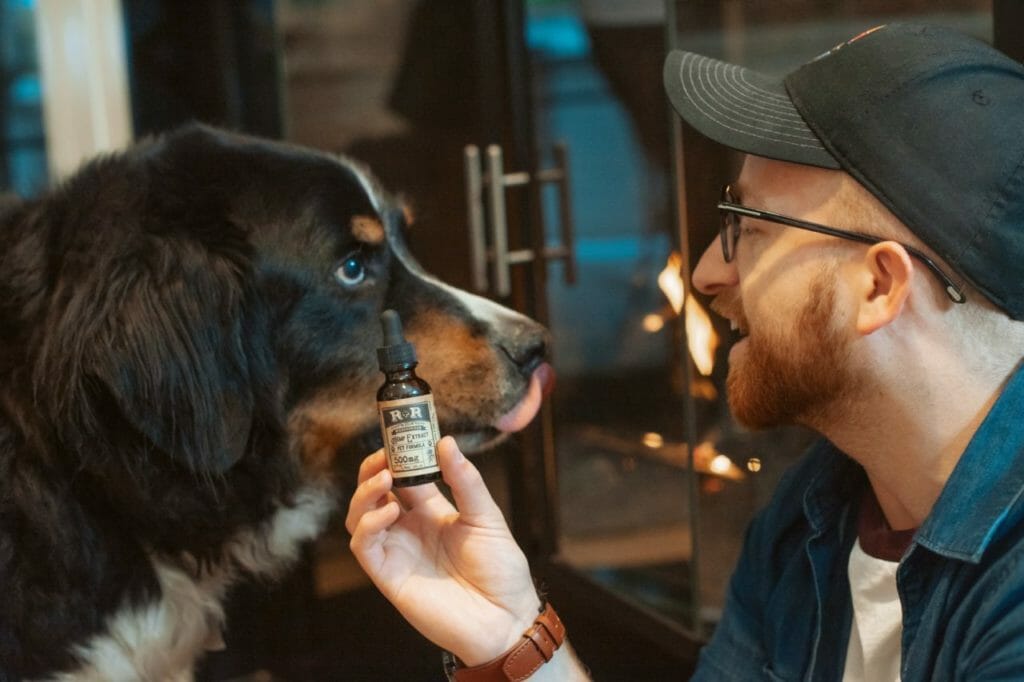
How to Treat Dog Throat Irritation
If your dog is experiencing any of the symptoms listed above, it’s important to take them to the vet to get a diagnosis. Your vet will be able to determine the cause of the irritation and recommend the best course of treatment.
Treatments from the vet will most likely include some form of medication and antibiotics, especially if your dog has an infection or is dealing with kennel cough. Your vet may also recommend that you change your dog’s food to a hypoallergenic diet if he or she suspects allergies are causing the problem.
For at home remedies, RehabPet.com recommends the following:
Natural Throat Remedies
- Honey (raw, organic)
- Add apple cider vinegar to their water bowl (raw, unfiltered)
- Give them a spoonful of coconut oil
Good Rest Habits
- Elevate their food and water bowls
- Limit their activity (no running or jumping)
- Use a humidifier in their sleeping area
If your dog is experiencing any difficulty breathing, has a high fever, or is vomiting, these are all signs of a more serious condition and you should take them to the vet immediately.
Preventing Dog Throat Irritation
There are some things that you can do to prevent your dog from getting throat irritation in the first place.
- Make sure your pup’s vaccinations are up to date. This will help to prevent them from contracting viruses or bacteria that can cause tracheitis or kennel cough.
- Watch what they eat and don’t let them eat anything off the ground. While it may not seem like a big deal, small objects can easily get stuck in their throat and cause irritation.
- Keep an eye on their environment and make sure that there is nothing that could irritate their throat. This includes things like smoke, pollen, or even dry air. If you suspect that something is irritating your dog’s throat, take them to the vet to get checked out.
By following these tips, you can help to prevent your dog from getting throat irritation and keep them healthy and happy.
Closing Thoughts
Just like humans , dogs can get throat irritations that cause them pain and discomfort. The best way to prevent issues with your pup’s throat is to ensure regular vet checkups are always on the schedule. Stay on top of their vaccinations and always be aware of what your dog is eating.
A little prevention can go a long way!
